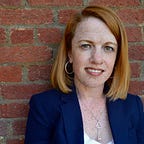Accessible. I do not think it means, what you think it means.
As an advocate who travels in a lot of spaces, I always have to remind myself that what non-disableds mean by “accessible” and what #DisCo means by “accessible” are two VERY DIFFERENT things. And every time I do not make this clarification up top, it becomes clear to me that they don’t get it, and serves as a stark reminder that I need to make our definition clear in the beginning.
Merriam-Webster has five distinct definitions of the term.
1a: capable of being reached a remote region accessible by rail also : being within reach fashions at accessible prices
1b: easy to speak to or deal with a friendly, accessible boss
2: capable of being used or seen : AVAILABLE information that should be accessible to everyoneThe collection is not currently accessible.
3: capable of being understood or appreciated the author’s most accessible stories an accessible film
4: capable of being influenced : OPEN people who are accessible to new ideas
5: easily used or accessed by people with disabilities : adapted for use by people with disabilities accessible bathrooms/doorways/seating/parking
While definition five comes closest to what disabled people are thinking about when we use the word, it’s still lacking something. And that something is intention. When describing an event, a location, a program, as accessible, has there been an intention and deliberate thinking about how to ensure the equitable and integrated participation of all parties?
Accessibility is a value, as much as it is an adjective
I’ve come to realize that often by “accessible,” non-disabled people mean it as a synonym for “available” and not is it in a space, format, or language that enables participation of disabled (and other marginalized) people. “Why yes you can access the space.” (In this case, access is a synonym for it being available for you.)
It’s not about can I get in the door? Or even, is there a bathroom that I can use? But can I truly participate with the people, materials, and discussion. If there is a happy hour, is it full of 4 foot stools and high top tables? Or is it a mix. Is there a quiet space available if folks need to decompress or process? Can I engage equally as comfortably as my non-disabled peers or am I going to be continually asking someone to turn on the captions or find me an interpreter? Are all speakers briefed on introducing themselves each time before they speak and doing an audio description the first time, or am I going to have to guess who’s talking? Are accommodations truly integrated into the DNA of said event and its’ framing values or am I going to need to actively advocate?
Were disabled people considered as attendees or participants from the beginning and was thought dedicated to how to make that happen seamlessly? Or was there a last moment panic when you saw that we registered and now you’re throwing together a half-hazard attempt to make it work. This isn’t “Project Runway” and Tim Gunn will not be giving you props for it.
Accessibility is the difference between being invited to an event, and feeling welcome at said event.
Accessibility is a mechanism for inclusion. (That is a whole other blog post because non-disableds seem to forget that the term has its roots in OUR right to education.) It is a lens which the organizing parties have applied across the “space.”
And until non-disabled people truly understand that making things accessible for people with disabilities makes them more inclusive for everyone, we’ll continue to hear “but we have a ramp.”
